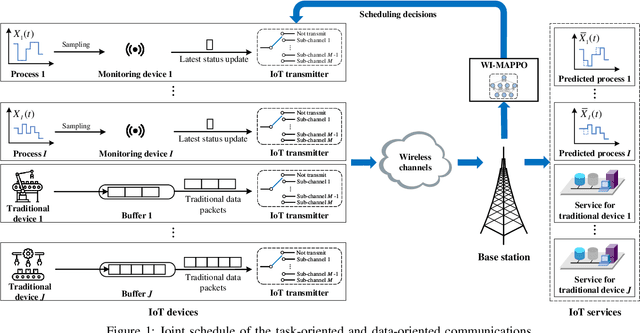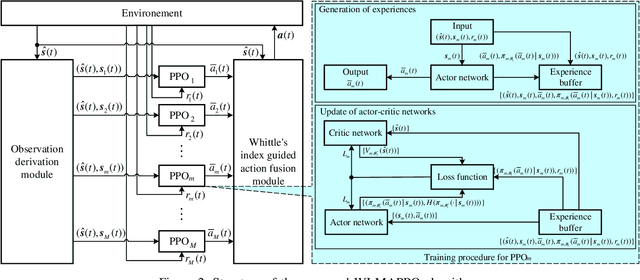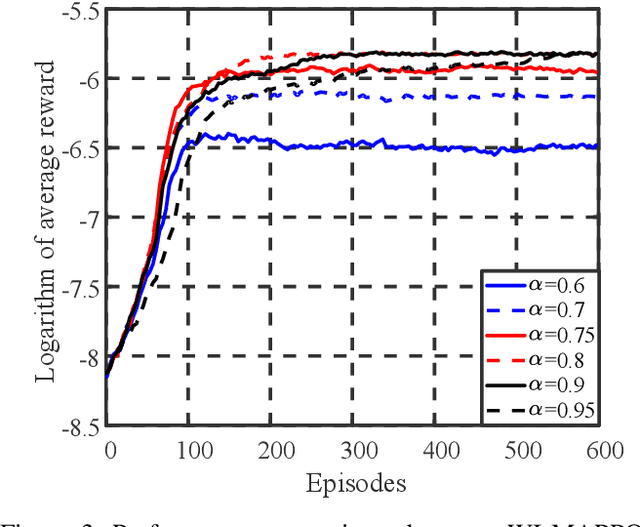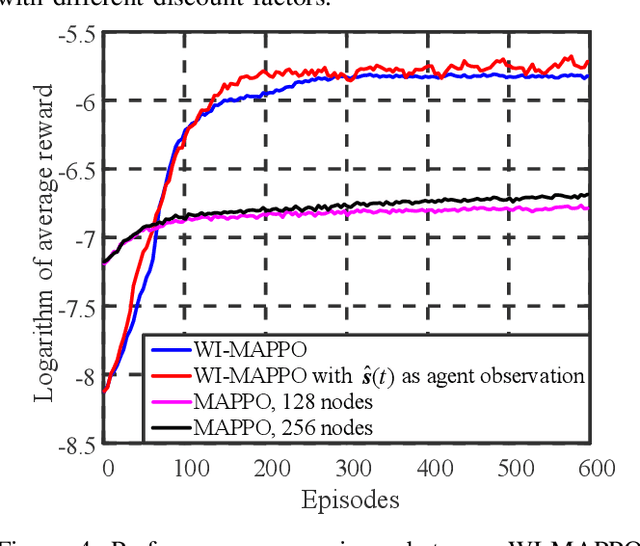Coexistence between Task- and Data-Oriented Communications: A Whittle's Index Guided Multi-Agent Reinforcement Learning Approach
Paper and Code
May 19, 2022



We investigate the coexistence of task-oriented and data-oriented communications in a IoT system that shares a group of channels, and study the scheduling problem to jointly optimize the weighted age of incorrect information (AoII) and throughput, which are the performance metrics of the two types of communications, respectively. This problem is formulated as a Markov decision problem, which is difficult to solve due to the large discrete action space and the time-varying action constraints induced by the stochastic availability of channels. By exploiting the intrinsic properties of this problem and reformulating the reward function based on channel statistics, we first simplify the solution space, state space, and optimality criteria, and convert it to an equivalent Markov game, for which the large discrete action space issue is greatly relieved. Then, we propose a Whittle's index guided multi-agent proximal policy optimization (WI-MAPPO) algorithm to solve the considered game, where the embedded Whittle's index module further shrinks the action space, and the proposed offline training algorithm extends the training kernel of conventional MAPPO to address the issue of time-varying constraints. Finally, numerical results validate that the proposed algorithm significantly outperforms state-of-the-art age of information (AoI) based algorithms under scenarios with insufficient channel resources.
 Add to Chrome
Add to Chrome Add to Firefox
Add to Firefox Add to Edge
Add to Edge